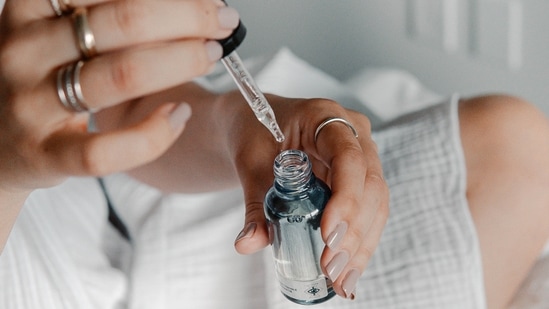The clean beauty movement has grown significantly over the last ten years and 2025 is undoubtedly going to be a historic year for organic skincare. Brands are focusing more on sustainability, ethical sourcing and scientifically proven natural ingredients as customers grow more conscious and demand greater transparency.
However, misconceptions around ingredients, safety, effectiveness and overall skincare continue to circulate amongst organic skincare products causing unnecessary panic due to such misinformation. [Also read: Return of Ayurvedic powerhouses: Kumkumadi to saffron and waterless products, here’s what’s trending in clean beauty]
Debunking myths: Natural vs synthetic ingredients
In an interview with HT Lifestyle, Dr Kriti Lohia, Founder, CEO and Consultant Dermatologist at Aesthetics Redefined By Cocoona, shared, “People frequently fail to realise that ‘natural does not always equate to ‘better’. As many dermatologists frequently point out, not all natural chemicals are intrinsically safe, just as not all synthetic ingredients are dangerous. For instance, essential oils and fragrances are part of many organic products but they tend to be allergenic or irritant for sensitive skin.”

She added, “On the other hand, some synthetics like salicylic acid and peptides are often much more stable and effective than the natural ones. You would be surprised to learn that salicylic acid, a well-known compound, is extracted from the bark of a willow tree. This raises the question of whether it becomes synthetic when concentrated in a lab or if it still qualifies as “natural”.”
In 2025, the aesthetics industry is embracing clean beauty that strikes a balance between nature and science. Dr Kriti Lohia revealed, “Most clean-beauty brands are focusing on bioengineered ingredients that mimic natural compounds, reducing need for over-harvesting and improving product stability, efficacy and safety. Fermented botanicals, microbiome-friendly skincare and plant-based retinol alternatives (for example, bakuchiol) are innovations that happen to be at the forefront of this shift.”
She pointed out, “Brands are required to reveal the whole truth about their claims and that’s what makes this so special. The information relay should have a solid logic-based structure and provide precise data analysis and scope of study that are suitable for the topic in question.”
Sustainability and ethical sourcing
With growing climate change concerns, sustainability is not a trend but a necessity. Dr Kriti Lohia asserted, “Say what you will about millennials and Gen Z but they are trailblazers in this movement. In 2025, natural first brands are focusing on eco-conscious packaging, refillable product bottles and biodegradable ingredients and packaging.”

According to Dr Kriti Lohia, there are also brands that are focused on the concept of upcycled beauty, where by-products from the food industry can be repurposed into skincare ingredients. She said, “Consumers are holding companies accountable for ethical sourcing, ensuring that natural resources are harvested responsibly without harming biodiversity. Just look at the brand Anomaly, by Priyanka Chopra that showcases this beautifully!”
What’s next for organic skincare?
Dr Kriti Lohia answered, “The future lies in evidence-based science and data backed formulations that merge nature with scientific advancements and innovations. We encourage people to look beyond marketing agendas and claims to focus on ingredient efficacy, ensuring that the products they use align with their skin needs rather than just trendy buzz.”
The expert concluded, “As 2025 unfolds, clean beauty is becoming more than fad—it’s a conscious, scientifically supported movement towards making aesthetics a lifestyle. The key is also to make an informed choice, balancing nature with science for healthier skin and a healthier mother Earth.”
Note to readers: This article is for informational purposes only and not a substitute for professional medical advice. Always seek the advice of your doctor with any questions about a medical condition.




